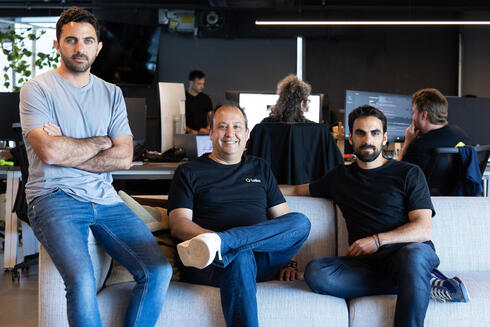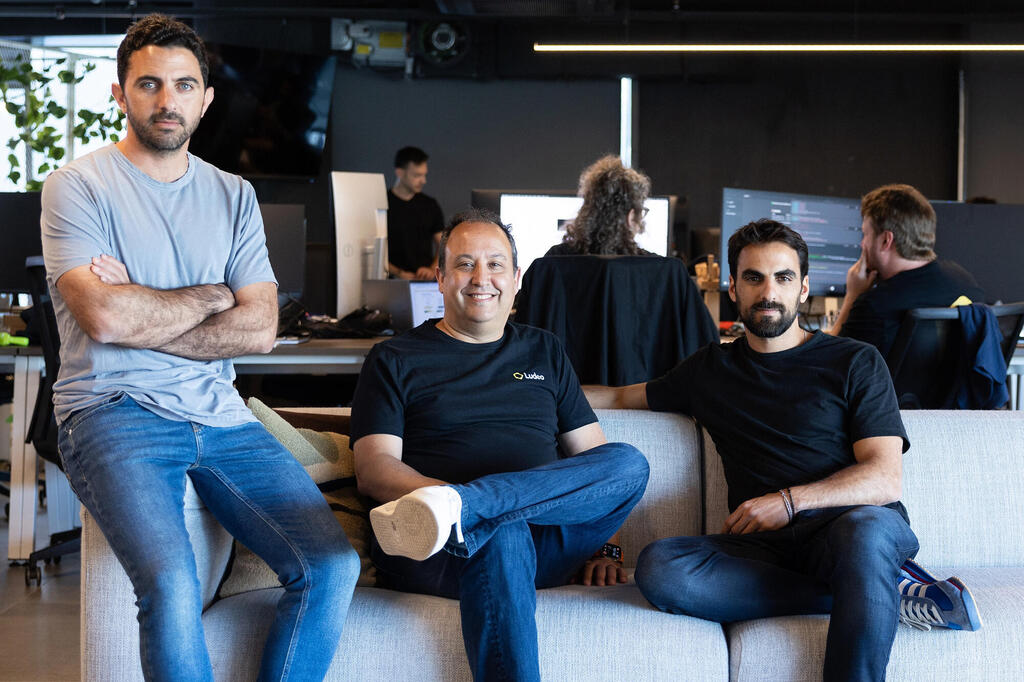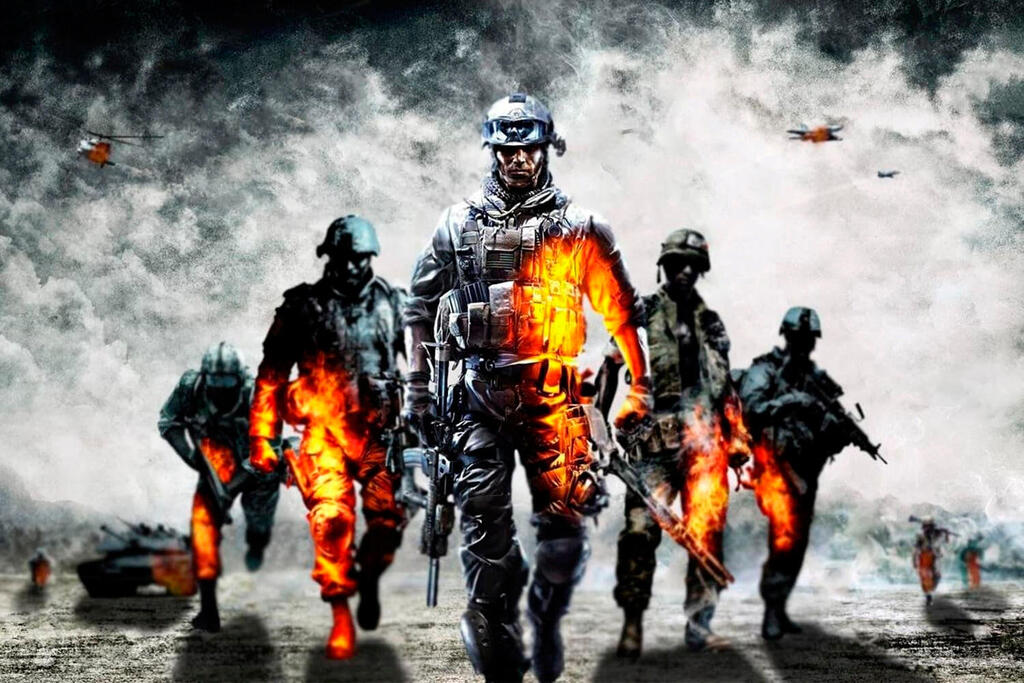
How does the CRO of Activision end up at an early-stage Israeli gaming startup?
After helping sell Activision to Microsoft for $70 billion, Rob Schonfeld joins Ludeo to reinvent how games are discovered and played.
How does the Chief Revenue Officer (CRO) of Activision Blizzard, one of the world’s largest gaming companies, sold to Microsoft in 2023 for $70 billion, end up as Chief Business Officer (CBO) of Ludeo, a small, relatively unknown Israeli startup?
“A friend told me about Asaf Gazit, the CEO and one of the founders,” says Rob Schonfeld in an interview with Calcalist. “Asaf suggested we meet in Las Vegas and then offered me a role. It sounded unrealistic to me at first, I never imagined I’d join an Israeli startup at this stage in my career. But when I met the team, their energy, optimism, and detailed vision convinced me. I felt like I had to be part of this.”
2 View gallery


Rob Schonfeld (center) alongside Luedo founders Asaf Gazit and Omri Gazit.
(Photo: Shay Shachar)
Ludeo, founded in 2022 by Asaf Gazit, his brother, and Omri Gazit (COO), has raised $40 million to date, with backing from Playtika, Samsung, and LG Ventures. The startup developed the world’s first video format built specifically for gamers. It allows players to record gameplay highlights, called Ludeos, and share them across social media. What makes Ludeos unique is that viewers can actually play the recorded clip, even if they don’t own the game. This transforms passive viewership into active engagement. Ludeo is currently expanding its partnerships with distributors, aiming for over a million hours of use per week.
What attracted you to this startup at this stage in your career?
“I didn’t think I’d have the energy to chase $100,000 deals, and I didn’t expect to want that now,” Schonfeld says. “I’ve always taken risks, but I had the safety net of big companies. Here, I don’t, but I believe in the technology. I’m convinced it can transform the gaming industry. And the team, they’re exceptional. For me, that removed most of the risk. I think we’ll scale quickly. We already have momentum. Game publishers are skeptical at first, but when they see our platform, they get excited. In just a month, I’ve had five meetings, all of which went over time. Our biggest challenge now is staying focused on our core mission.”
Until recently, Schonfeld was a senior executive at Activision Blizzard. He helped lead the company’s sale to Microsoft and stayed through the integration process. His résumé also includes leadership roles at Disney and the consulting firm BCG.
How did you first get to Activision Blizzard?
“I was interested in one of their games and set up a Google Alert. One day I saw a job post for a digital role, sent in my resume, and after 17 interviews, I got the job. Back then, consoles were dominant, but we knew that would change. The goal was to make buying games as simple and seamless as possible. Downloading games used to take four days. Eventually, digital distribution became superior, and we could generate revenue even before a game’s launch, not just at release.”
Indeed, Activision Blizzard grew exponentially during your tenure.
“I joined in 2012, when the company was valued at about $7 billion. It was sold for $70 billion in 2023. Innovation was in the company’s DNA, we were always looking for ways to better serve players. I left about a year ago. The deal closed in October 2023, and I stayed through 2024 to oversee the integration. The entire management team left together after that.”
How was the merger experience?
“It was incredible, but time-consuming. As CRO, I was responsible for all revenue, physical, digital, consumer, and for our international offices. Our challenge was to keep growing amid the uncertainty. We had a strong relationship with Xbox before the deal, so that helped. Microsoft’s people are smart, focused, and politics-free. We focused on the business and cared about employee well-being—many were worried about what the future held.”
Was the $70 billion sale price too low?
“I thought so. Call of Duty was just getting started on its next wave of success, and our other titles were gaining momentum. Microsoft got a great deal, and an exceptional team.”
How will this acquisition shape Microsoft's gaming future?
“They gained a powerful portfolio. They didn’t have Candy Crush or Call of Duty before. Now they do. Plus, they own legacy IPs that can be revitalized for new revenue streams.”
How do you view the gaming industry today, post-COVID?
“During COVID, everyone stayed home and played. Parents who thought gaming was antisocial realized it was actually very social. A lot of new players came into the fold. But the industry made the mistake of thinking the growth would last forever. When the world reopened, companies realized they had over-hired. Now, they’re resetting. The industry is waiting for its next growth catalyst.”
What role will AI play in the future of gaming?
“AI will be significant in game creation and increase supply. But we’ll still need systems to filter and curate that content.”
Ludeo CEO Asaf Gazit adds: “Gamers watch and share a trillion hours of content on social media each year. But only about 1% of viewers convert into players. Our technology turns video into a playable format and increases that conversion rate to 15%. Our platform is becoming a discovery engine for games. We don’t charge users to download games, we work with global publishers and content platforms to help them make games more accessible. Rob’s arrival is a huge force multiplier. It’s a major vote of confidence.”














